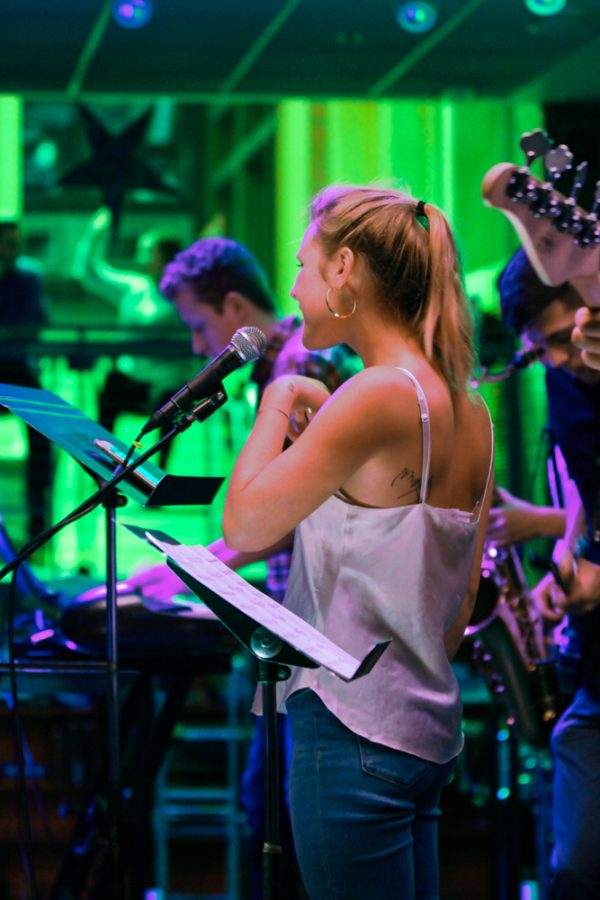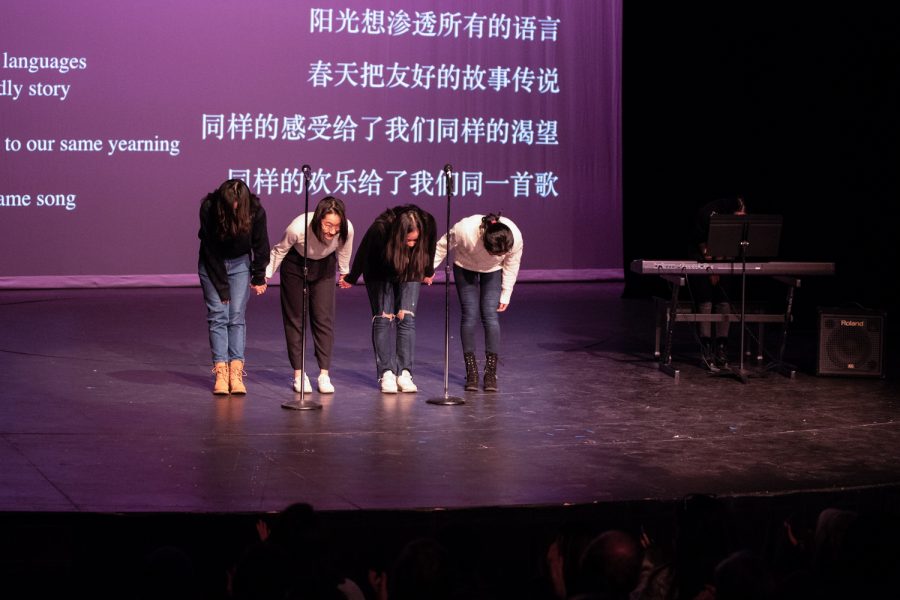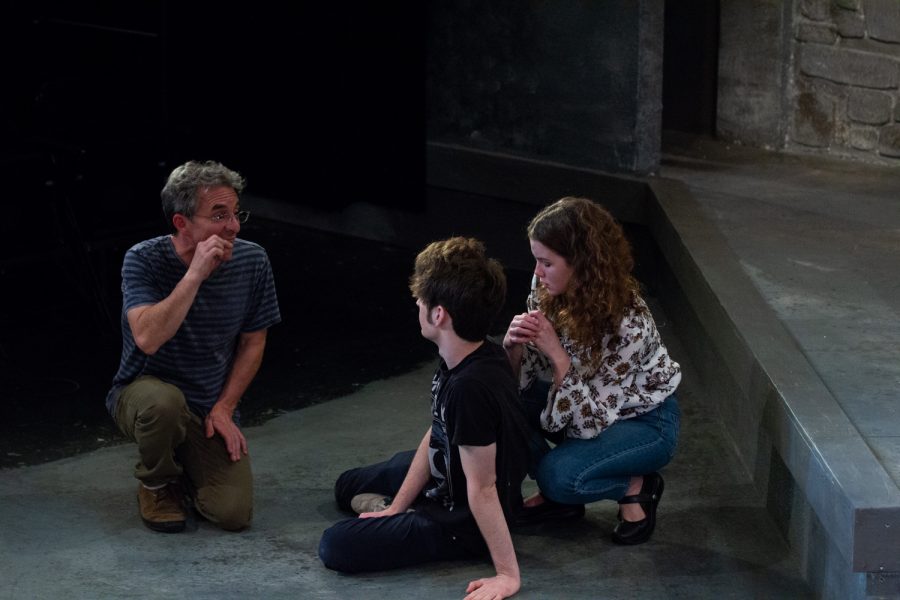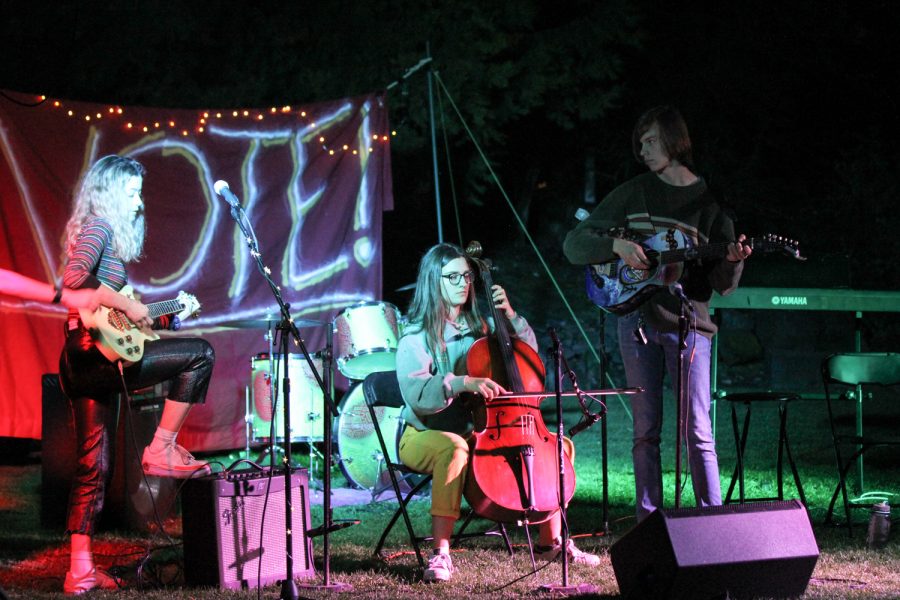
Sophomore Mcebo Maziya is perhaps the most well-known on campus as “that guy who sings Beyoncé really well in the T-Tones.” A talented musician, Maziya is also an advocate for increased diversity here on campus and is passionate about his background in singing, his experience growing up, and how reflects on the Whitman idea of diversity. The Pioneer sat down with him to talk about African dance, Aretha Franklin and the clarinet.
Pioneer: Let’s go back to the basics. How did you begin singing?
Mcebo Maziya: I had a jazz singer mom who sang during South African apartheid. I grew up in a musical family, in a very Christian home. Black church music and gospel were huge to me from a very young age and I grew up singing every day, with family. I was forced to join choir at school. Church choir was very competitive to get in and get a solo.
Pioneer: What other choirs were you a part of growing up?
MM: I also was choir direct of an African a cappella choir at the school I went to, African Leadership Academy. I sang a vast majority of stuff, not only South African songs, but also general African songs.
Pioneer: What was one of your favorite musical experiences?
MM: When I was part of a revue in high school. It’s a musical sort of, with a string of songs as opposed to having a main story line.
Pioneer: What was that revue about?
MM:The theme was … I forgot. It was very amazing for me as a singer and a musician, because for those we have to do studio work. I had never done that before, and we spent six to seven hours for each song, especially “Kiss from a Rose” by Seal.

Pioneer: I love that song!
MM: [Laughs] Me too. I grew as a musician there because I could sing at my school that was very white and quite racist. It was important to literally have a voice in a school like that.
Pioneer: Was singing an outlet?
MM: Definitely. I love music. Whenever people ask my what type of music I listen to, its everything from Beethoven to Bob Marley to Aretha Franklin, to Etta James and the blues to hip-hop. I’m all over the place. Music is an expression of an intangible world. It’s not just sounds; we live with it. It forms part of my expression. I love also expression through fashion. I believe that fashion is a way to express yourself without saying anything.
Pioneer: Did you play any instruments growing up?
MM: I played clarinet for a while, until I realized I didn’t want to anymore. I also dropped saxophone and picked up singing. I’d be humming and singing while washing the dishes, and my mom would be like, “That fifth note sounded off.” I always grew up with someone to critique me, and I cannot thank her enough.

Pioneer: What about on a different note?
MM: I am really passionate about social advocacy and activism. I am looking into going into law, but we will see how that goes. I am very passionate about going back to Africa after my education to help out in whatever capacity I can. Africa is one of the most amazing places ever, with so much potential, but it also is very unfortunately misrepresented. The image of Africa is something that needs to change within the Western mindset.
Back home, I would Google Africa and there would be pictures of hungry kids, droughts, war, beautiful sunsets. That is problematic within itself. Here, people would refer to Africa as a country. There are so many countries there; it’s very diverse. Exteremely diverse.
Pioneer: How do you deal with that ignorance?
MM: Being part of [the Black Student Union helps], but the conversation should not be happening just among people of color; it should be happening within different races, with people of different opinions and different socioeconomic backgrounds. At this moment, Whitman could be doing more on bringing those speakers to Whitman, which is why I got involved in ASWC.
Pioneer: Anything else you would like to say?
MM: My problem with diversity on campus is not even about the number of people of color. My problem is the apathy that Whitman has with these issues. Same thing with LGBTQ. The environment is tolerant but not embracing here at Whitman. That’s the line between a good, politically active and socially aware community and a stagnant, immovable, paralyzing community that can’t do anything.
Pioneer: How can we change our ignorance?
MM: There is no excuse for why so many students are still so ignorant, when there is so much information out there. Students of color that are here are resources, and there so many professors that are experts. There is no reason why ignorance should be prevailing. Especially because we are really smart people here. I’d encourage people to go the extra mile and try to find out. And I’m very open for what people have to say from their side. It’s all out there; now it’s up to people to acknowledge the white privilege, inequality. It’s not fair for students of color to always be agitating for their right to be here, or proving why they are supposed to belong here.









